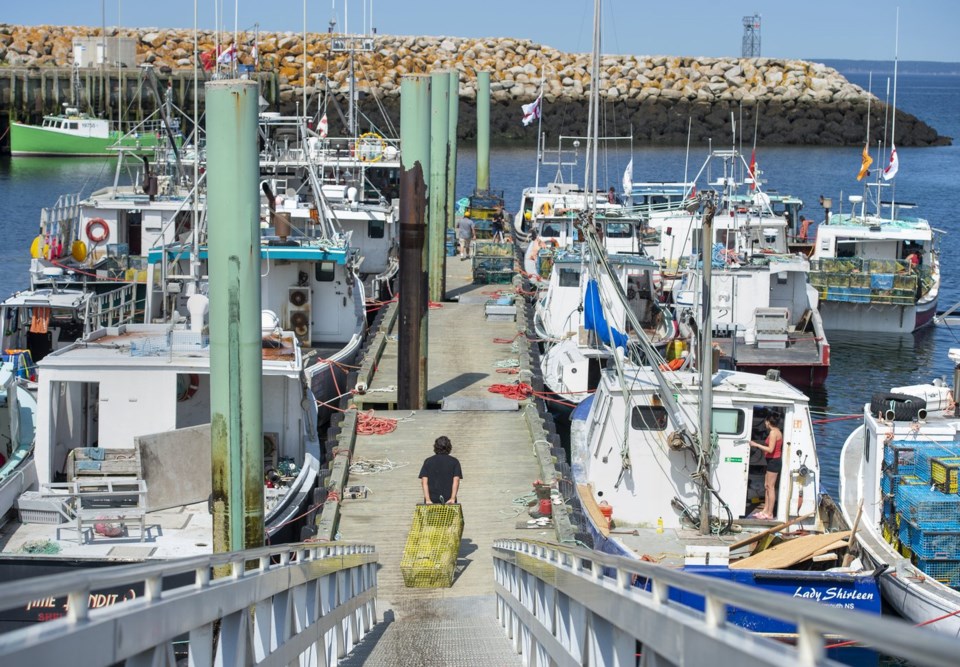HALIFAX — The lawyer for a Mi'kmaq band that has battled Ottawa over its lobster fishing rights says a deal settling the "centuries-old" dispute is nearly complete.
Ronald Pink told Justice John Keith in provincial Supreme Court on Thursday that Sipekne'katik First Nation's 17 mediation meetings over its treaty-based fishery off the province's southwestern coast have opened up a dialogue that didn't exist before between the federal Fisheries Department and the band.
"This is a difficult mediation in the sense that the parties had never really communicated about the issues in living memory. The process that the court authorized has been incredibly successful," he said. "The nature of discussion is far-reaching, and we're moving to a conclusion."
Band members have said their "moderate livelihood" fishery outside of the regular season is permitted by a 1999 Supreme Court of Canada decision, but non-Indigenous commercial fishers have contended it threatens stocks and fails to recognize the courts also maintained Ottawa's right to regulate.
Pink made his statement while seeking a further delay in a lawsuit the band launched in 2021 seeking a declaration that current federal regulations infringe on its treaty right to fish.
He said the disagreement over how an Indigenous fishery should proceed has deep roots, extending back to treaties made between colonial settlers and Mi’kmaq fishers of the 18th century.
“We are dealing with a longtime, historical matter, that is a long time in the making, centuries old, and with great respect to all present, this is a matter that ought to be dealt with on a nation to nation basis,” he said.
Richard Norman, a lawyer for the Unified Fisheries Conservation Alliance — which is intervening in the case on behalf of commercial fishers — told the judge his client fears the mediation will ignore the interests of non-Indigenous fishers. "Litigation has a much likelier chance of moving forward and resolving these issues," he said.
Outside of court, Colin Sproul, the president of the alliance, said his group will "never accept" a mediated deal that allows a commercial-scale fishery in the summer and the early fall.
The commercial fishers are not included in the mediation, and do not have a veto over the result. However, Pink and Justice Department lawyer Gwen MacIsaac said the commercial fishers would be "consulted" if a draft deal is completed.
After hearing the arguments, the judge gave Ottawa and the band six more months to conclude their deal, and said if there's no deal, the court case would resume on June 16.
The mediation talks over the past year have been extensive, with former senator Dan Christmas and retired federal mediator Barney Dobbin guiding discussions.
According to a letter Pink sent to the court, seven federal officials — including the regional director of the Fisheries Department — have attended the weekly talks, with 10 representatives of the First Nation participating.
"The progress made to date and moving forward from our 25 years of impasse is immeasurable," wrote Pink.
The Supreme Court of Canada’s 1999 Marshall decision said the Mi’kmaq, Maliseet and Passamaquoddy bands in Eastern Canada could hunt, fish and gather to earn a “moderate livelihood,” though the court followed up with a clarification saying the treaty right was subject to federal regulation to ensure conservation.
In September 2020, the Sipekne’katik First Nation issued five lobster licences to its members, saying they could trap and sell their catch outside the federally regulated season.
In the months that followed there were confrontations on the water, rowdy protests and riots at two lobster pounds, one of which was razed by arson.
There has been a rise in criminal activity in the Meteghan area over the past four years, with RCMP and local lobster buyers linking violence and intimidation to the off-season lobster harvest.
This report by The Canadian Press was first published Dec. 12, 2024.
Michael Tutton, The Canadian Press



